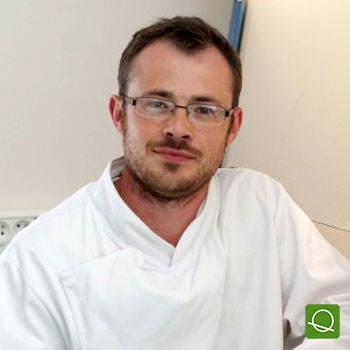
Thomas Sécher
Thomas is a research scientist in the field of mucosal immunology and therapeutics. He is particularly concerned about infectious diseases and the way we can prevent them. Quickly realized the importance of the host-pathogen-environment triad in determining the outcome of infectious events and he was fascinated by the host-pathogen dualism and how their interactions dictate pathogenesis and subsequently modulate the efficacy of therapeutics. Studying this in more details has always been the driving force of my research.
Thomas owned a PhD in immunology/infectiology and have more than 10 years of experience in mucosal immunology and experimental disease models. After pursuing research projects at the CNRS (UMR 6218, Orléans, France) and INSERM (UMR1043, Toulouse, France), he joined the Research Center for Respiratory Diseases in Tours in 2016. His research interests are mainly focused on proof-of-concept for aerosol delivery of biotherapeutics and mainly therapeutic antibodies to treat respiratory tract infections.
Thomas (co-)authored more than 40 peer-reviewed publications, 1 patent and has given more than 20 oral presentations. He was a member of the scientific committee for the 7th (2019) and 9th (2021) AIS congress and actively serves as reviewer for Frontiers in Immunology, Frontiers in Microbiology, Gut and Plos One.

